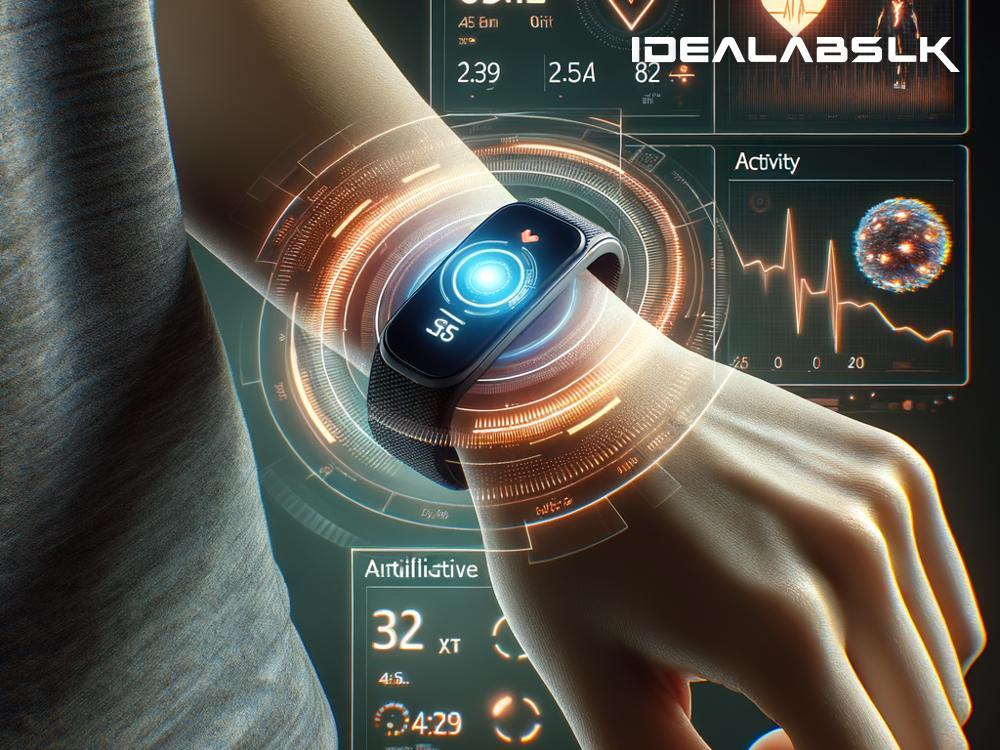Title: The Marvel of AI in Advanced Body Sensors for Health Monitoring
In the ever-evolving world of technology, artificial intelligence (AI) is a game changer, especially when it comes to healthcare. It’s like having a super-smart friend who never gets tired of helping us stay on top of our health. Let’s dive into how AI works its magic in advanced body sensors for health monitoring, making it easier for everyone to keep tabs on their wellbeing in a way that was once the stuff of science fiction.
Imagine wearing a tiny gadget, perhaps on your wrist or as a patch on your skin, that keeps an eye on how your body is doing. These aren’t ordinary gadgets; they’re equipped with advanced sensors powered by AI that can tell you a lot about your health in real-time. From checking your heart rate to monitoring your sleep patterns, these smart devices are like having a personal health assistant at your side 24/7.
How Do These Advanced Body Sensors Work?
At the heart of these devices are tiny, sensitive components that can detect and measure various aspects of your bodily functions. These sensors collect data – such as your temperature, heart rate, the amount of oxygen in your blood, and even how well you’re sleeping. But gathering data is just the first step. The real magic happens when AI steps in to analyze this information.
AI, with its ability to learn and adapt, starts recognizing patterns in the data. It compares what it gathers from you with vast amounts of health data it has already learned from. This means it can identify if something's not quite right or if you’re doing just fine. For example, if your heart rate is higher than usual over a certain period, the AI might infer that you’re stressed or haven’t been getting enough rest.
Why Is AI Such a Big Deal in Health Monitoring?
The beauty of having AI in health monitoring systems is its ability to provide personalized insights. Everyone’s body is unique, and what’s normal for one person may not be for another. AI excels at understanding these nuances. It learns what’s normal for you personally, making its health assessments incredibly tailored to your individual needs.
Furthermore, AI can predict potential health issues before they become serious by analyzing trends in your health data. This predictive power can be a lifesaver, literally. For instance, sudden changes in heart rate variability might alert you to a potential heart condition, allowing you to seek medical advice early.
The Future of Health Monitoring
The potential of AI in advanced body sensors is vast. Future developments could enable these devices to detect a wide range of health issues, from dehydration to respiratory conditions, simply by wearing a sensor. Researchers are even working on sensors that could predict viral outbreaks in your body before you start showing symptoms!
One thrilling aspect of AI in health technology is its potential to democratize healthcare. These devices could make it easier for people in remote or underserved areas to monitor their health, getting insights and alerts that could prompt them to seek medical help when necessary.
The Challenges
Despite the bright future, challenges remain. Issues like data privacy and ensuring the security of health information are significant concerns. There’s also the task of making these advanced sensors affordable and accessible to everyone, regardless of their income level or where they live.
Moreover, while AI is powerful, it’s not infallible. Ensuring these systems are accurate and reliable is crucial since they're dealing with something as important as human health. Researchers and developers are continuously working to improve these technologies, making them more reliable every day.
In Conclusion
The integration of AI in advanced body sensors for health monitoring is revolutionizing the way we look after our health. By providing real-time, personalized insights into our bodily functions, these devices empower us to take charge of our wellbeing proactively.
As we move forward, the fusion of technology and healthcare through AI opens up exciting possibilities for improving global health outcomes. While challenges remain, the potential benefits of these smart health monitoring solutions make it a journey worth embarking on.
So, the next time you strap on a smartwatch or a health monitor, remember, it’s not just a piece of technology — it’s a glimpse into the future of personalized healthcare, made possible by the remarkable powers of AI.

